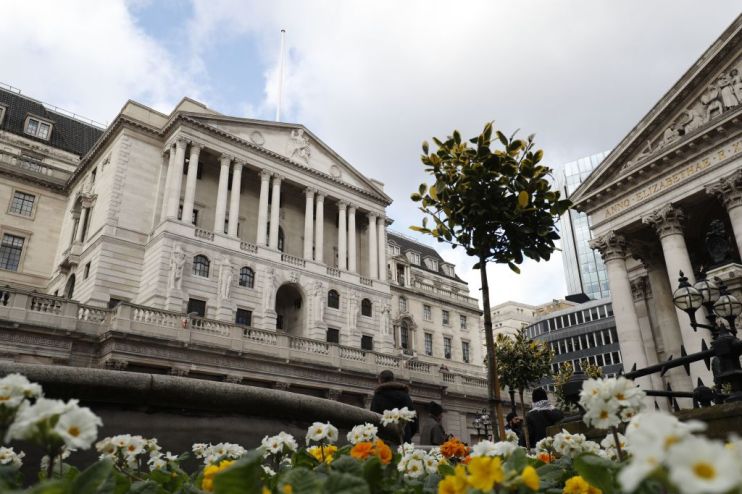UK economy: Is the Bank of England’s 2021 rebound scenario too optimistic?

The Bank of England today said the UK economy could suffer its worst economic crash in 300 years this year as the coronavirus lockdown batters the economy. Yet it said it is likely to bounce back relatively quickly.
Despite the dire report it stopped short of launching more bond-buying or “quantitative easing” (QE) and left interest rates on hold.
Bank of England governor Andrew Bailey said that the economic slump will be dramatic. Yet he said the UK economy is likely to rebound “much more rapidly than the pull back from the global financial crisis”.
Yet many economists have questioned whether the Bank has been too optimistic in its “illustrative scenario”. They point to the threat of a second wave of infections and “scarring” from unemployment.
Analysts and traders also said that the Bank of England is likely to launch more QE in the coming months amid falling inflation and tumbling demand.
Has the Bank been too optimistic about the UK economy?
The Bank’s “scenario” has the UK economy shrinking by 14 per cent in 2020 but rebounding sharply in 2021 by 15 per cent. It says the UK economy is likely to be back to its pre-coronavirus size by the middle of next year.
Seema Shah, chief strategist at Principal Global Investors, said this perspective “is surprisingly upbeat”. Many analysts have said similar things.
The Bank of England said little about the dangers of a second wave of coronavirus infections. But it cautioned that growth “will depend critically on the evolution of the pandemic”.
KPMG’s chief economist Yael Selfin said that some form of social distancing measures are likely to remain in place until a vaccine or effective treatment is developed. “That means recovery is unlikely to start in earnest before sometime next year.”
She added that Brexit poses a risk to the UK economy. The Bank assumed that Britain will secure a trade deal with the EU by the end of the year. Yet Selfin said the probability of a “smooth transition” is relatively small, “adding further uncertainty to businesses”.
However, Andrew Goodwin, chief economist at consultancy Oxford Economics, said he agreed with the Bank’s scenario of a relatively quick rebound.
Goodwin said there is a lot of pent-up demand in the economy. He said businesses will be keen to get going again once lockdown measures are lifted.
Yet Peter Dixon, senior economist at Commerzbank, pointed to previous experiences. “Following the three big recessions of the past 40 years, it has taken an average of four years for output to reach pre-recession levels,” he said.
“This is not to say that the BoE will necessarily be proved wrong but it does suggest that risks to growth lie to the downside.”
Will the Bank of England launch more QE?
The Bank has injected an unprecedented amount of stimulus into the UK economy in recent months. In March, it ramped up its QE programme – under which it creates money to buy bonds and lower lending costs – by £200bn.
Threadneedle Street today stopped short of offering more bond-buying. Yet Bailey said the Bank is ready “to take action should we need to do so”.
The Bank of England’s monetary policy committee (MPC) was divided on the issue, however. The minutes showed two members voted for £100bn more QE.
Oliver Blackbourn, multi-asset portfolio manager at Janus Henderson Investors, said this indicated “a continued dovish bias from certain voting members”. He added that the Bank is due to complete the current round of purchases “within months”.
“Therefore, expectations will be high for an increase in the purchase target at the next meeting in mid-June.”
PwC senior economist Alex Tuckett said that the Bank’s drastic scenario showed that the UK economy will need more help. “With such an impact, and so much uncertainty, it is highly likely that the MPC will move to provide further stimulus over the coming months.”
How did the markets react?
Markets have taken to shrugging off dire economic forecasts and choosing to instead focus on the future. It was no different today, with the FTSE 100 stock index up 0.9 per cent just after midday at 5,905 points. The FTSE 250 of smaller companies rose 1.2 per cent.
Chris Beauchamp, chief market analyst at trading platform IG, said: “Stock markets have continued to eke out small gains so far today, continuing the generally optimistic theme of the week for equities.”
The pound was 0.1 per cent higher against the dollar at $1.235. Janus Henderson’s Blackbourn said: “The lack of additional easing was good for sterling in the moments after the announcement.”
He added: “With the Brexit trade talks back under way and the first deadline for an extension looming in June, sterling could use a strong bounce in growth, like the 15 per cent figure the Bank outlines for 2021.”